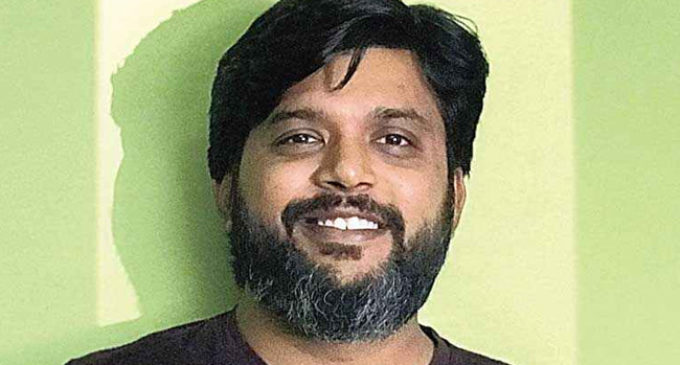Slain photojournalist Danish Siddiqui among four Indians honoured with Pulitzer Prize

NEW YORK, May 10: Slain photojournalist Danish Siddiqui is among four Indians honoured with the prestigious Pulitzer Prize 2022 in the feature photography category.
Siddiqui and his colleagues Adnan Abidi, Sanna Irshad Mattoo and Amit Dave from the Reuters news agency won the award, announced on Monday, for “images of COVID’s toll in India that balanced intimacy and devastation, while offering viewers a heightened sense of place”, according to The Pulitzer Prizes website.
Their work was moved from the breaking news photography category by the judges.
Siddiqui, 38, was on assignment in Afghanistan last year when he died.
The award-winning journalist was killed in July last while covering clashes between Afghan troops and the Taliban in Spin Boldak district of Kandahar city.
This is for the second time that Siddiqui has won the Pulitzer Prize.
He was honoured with the prestigious award in 2018 as part of the Reuters team for their coverage of the Rohingya crisis.
He had extensively covered the Afghanistan conflict, the Hong Kong protests and other major events in Asia, Middle East, and Europe.
Siddiqui graduated with a degree in Economics from Jamia Millia Islamia, Delhi.
He had a degree in Mass Communication from the AJK Mass Communication Research Centre at Jamia in 2007.
He started his career as a television news correspondent, switched to photojournalism, and joined Reuters as an intern in 2010.
Marcus Yam of the Los Angeles Times bagged the award in the Breaking News photography category “for raw and urgent images of the US departure from Afghanistan that capture the human cost of the historic change in the country”.
Yam’s work was moved from Feature Photography by the jury.
Win McNamee, Drew Angerer, Spencer Platt, Samuel Corum and Jon Cherry of Getty Images also won the award in the Breaking News photography category for their “comprehensive and consistently riveting photos of the attack on the US Capitol”.
The Washington Post bagged the Pulitzer Prize in public service journalism for its coverage of the January 6 insurrection at the US Capitol.
According to the award committee, the newspaper “compellingly told and vividly presented account of the assault on Washington on January 6, 2021, providing the public with a thorough and unflinching understanding of one of the nation’s darkest days”.
The Post’s extensive reporting, published in a sophisticated interactive series, found numerous problems and failures in political systems and security before, during and after the Jan 6, 2021, riot in the newspaper’s own backyard.
The “compellingly told and vividly presented account” gave the public “a thorough and unflinching understanding of one of the nation’s darkest days,” said Marjorie Miller, administrator of the prizes, in announcing the award.
Five Getty Images photographers were awarded one of the two prizes in breaking news photography for their coverage of the riot.
The other prize awarded in breaking news photography went to Los Angeles Times correspondent and photographer Marcus Yam, for work related to the fall of Kabul.
The US pullout and resurrection of the Taliban’s grip on Afghanistan permeated across categories, with The New York Times winning in the international reporting category for reporting challenging official accounts of civilian deaths from US airstrikes in Syria, Iraq and Afghanistan.
The Pulitzer Prizes, administered by Columbia University and considered the most prestigious in American journalism, recognise work in 15 journalism categories and seven arts categories.
This year’s awards, which were livestreamed, honoured work produced in 2021.
The winner of the public service award receives a gold medal, while winners of each of the other categories get $15,000.
The intersection of health, safety and infrastructure played a prominent role among the winning projects.
The Tampa Bay Times won the investigative reporting award for “Poisoned,” its in-depth look into a polluting lead factory.
The Miami Herald took the breaking news award for its work covering the deadly Surfside condo tower collapse, while The Better Government Association and the Chicago Tribune won the local reporting award for “Deadly Fires, Broken Promises,” the watchdog and newspaper’s examination of a lack of enforcement of fire safety standards.
“As a newsroom, we poured our hearts into the breaking news and the ongoing daily coverage, and subsequent investigative coverage, of the Champlain Towers South condominium collapse story,” The Miami Herald’s executive editor, Monica Richardson, wrote in a statement.
“It was our story to tell because the people and the families in Surfside who were impacted by this unthinkable tragedy are a part of our community.”
Elsewhere in Florida, Tampa Bay Times’ editor and vice president Mark Katches mirrored that sentiment, calling his newspaper’s win “a testament to the importance of a vital local newsroom like the Times.”
The prize for explanatory reporting went to Quanta Magazine, with the board highlighting the work of Natalie Wolchover, for a long-form piece about the James Webb space telescope, a $10 billion engineering effort to gain a better understanding about the origins of the universe.
The New York Times also won in the national reporting category, for a project looking at police traffic stops that ended in fatalities, and Salamishah Tillet, a contributing critic-at-large at the Times, won the criticism award.
A story that used graphics in comic form to tell the story of Zumrat Dawut, a Uyghur woman who said she was persecuted and detained by the Chinese government as part of systemic abuses against her community, brought the illustrated reporting and commentary prize to Fahmida Azim, Anthony Del Col, Josh Adams and Walt Hickey of Insider.
Jennifer Senior of The Atlantic won the award for feature writing, for a piece marking the 20th anniversary of the 9/11 attacks through a family’s grief.
Melinda Henneberger of The Kansas City Star won for commentary, for columns about a retired police detective accused of sexual abuse and those who said they were assaulted calling for justice.
The editorial writing prize went to Lisa Falkenberg, Michael Lindenberger, Joe Holley and Luis Carrasco of the Houston Chronicle, for a piece that called for voting reforms and exposed voter suppression tactics.
The staffs of Futuro Media and PRX took the audio reporting prize for the profile of a man who had been in prison for 30 years and was re-entering the outside world.
The Pulitzer Board awarded a special citation to the journalists of Ukraine for their “courage, endurance, and commitment to truthful reporting during (President) Vladimir Putin’s ruthless invasion of their country and his propaganda war in Russia”.
“Despite bombardment, abductions, occupation, and even deaths in their ranks, they have persisted in their effort to provide an accurate picture of a terrible reality, doing honour to Ukraine and to journalists around the world,” the committee said.
The Pulitzer Prizes were established by Joseph Pulitzer, a Hungarian-American journalist and newspaper publisher, who left money to Columbia University upon his death in 1911.
A portion of his bequest was used to found the School of Journalism in 1912 and establish the Pulitzer Prizes, which were first awarded in 1917.
The 19-member Pulitzer Board is composed of leading journalists and news executives from media outlets across the US, as well as five academics or persons in the arts.
The dean of Columbia’s journalism school and the administrator of the prizes are non-voting members.
The chair rotates annually to the most senior member or members.
The Pulitzer Board has also awarded a special citation to Ukrainian journalists.
The board recognised those in their home country covering the ongoing crisis that began earlier this year for “their courage, endurance, and commitment to truthful reporting during Vladimir Putin’s ruthless invasion of their country and his propaganda war in Russia.”
The board said their reporting has provided an accurate picture of the situation in the country and has done honour to both Ukraine and journalists everywhere.
-The New Indian Express






